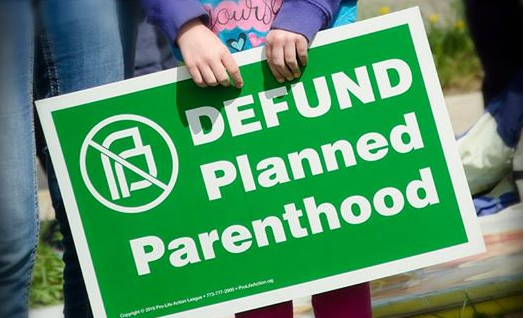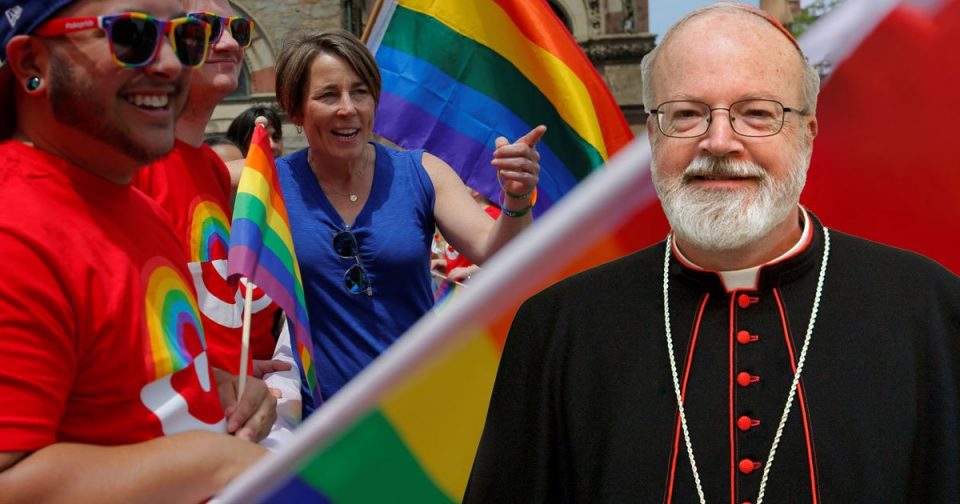By Anthony Esolen, Cardinal Newman Society, January 23, 2018
 When men and women cannot be trusted with one another, they either hurl themselves headlong into debauchery or they retreat into silence and loneliness
When men and women cannot be trusted with one another, they either hurl themselves headlong into debauchery or they retreat into silence and loneliness
When I defend in public the principle of public decency—or of public morals that protect marriage, the family, and the innocence of children—I must hear that I am a “theocrat,” and that I wish to intrude religion where religion does not belong.
Apparently religion and sex have exchanged places. Religion, which by its very nature is public, because it deals with man’s coming together in community to worship God and to do His will on earth, must retire in blushing shame to a private chamber, while sex is now something you do in the streets.
Apparently a “religious” motive vitiates anything, even if you argue without appealing to scripture or to the doctrines of your church. In the meantime, an erotic motive blesses anything, even though you do not bother to consider its harm to public decency, public morals, and the common good. The argument is that of a spoiled child: “I want it!”
Let me then give an example of a society whose existence as such depends upon the upholding of public decency and public morals. But first, a society where those are not upheld.
For 10 years at least, in the muddling Catholic college where I used to teach, I would arrive at my classroom and there would be dead silence, after passing other classrooms, wherein dead silence also prevailed. We mustn’t attribute the silence to the fact that it was a big college, and the students were not likely to have known one another. Even after a whole semester, they wouldn’t talk. They would be on their phones. If I gave them a short break in the middle of a two-hour seminar, they would take the opportunity to seclude themselves all over again. They did not flirt. Nor would you see a boy and girl holding hands, outdoors—not more than once every three or four years would you see such a thing.
When you don’t have a good destination clearly before your mind, you will lose your way, and soon enough you will lose the sense that there ever was any way at all. The collapse of public morals has done that to the sweet and ordinary relations of young men and young women. They do not flirt, they do not date, they hardly speak to one another in public. It is all too dangerous, too heavily fraught with meanings that nobody intends. If the boy asks the girl to a movie, does that mean he wants to go to bed with her? She doesn’t know, and he doesn’t know what she would think of it. So he does not ask in the first place. It is a revolution of loneliness.
Where I teach now—Thomas More College—it is not so. We don’t allow laptops and suchlike in the classroom, and that alone helps a lot. But that wouldn’t matter much were it not for the public observance of the moral law. And it does have to be public: We base what we do on what we can expect others to do in response. The common good requires a common language, a common set of expectations, a common lived experience. Precisely because, at Thomas More, fornication and lewdness are out of the question, boys and girls are free to be comfortable with one another, and to fall in love. They flirt, they tease, they tell jokes, they laugh, they talk; they enjoy one another’s company. The young ladies say good things about the young men, and not just about one or two who aren’t like the rest, and the young men say good things about the young ladies, also not just about one or two.
The only people who know how good they have it there are the few who have transferred from another school: most notably, and this is sad to say, a young man who transferred from what was once a Catholic place, Misericordia University, within shouting distance of where I grew up. The flat-footed good sense of the working-class Italians and Irishme—miners and quarrymen, in decades past—no longer prevails, not in the sexual sphere, so that Miserifica, I mean Misericordia, is in this regard not much better than Penn State. But to my other students I said one day, when I found a short break in their animated chatter and laughter, that what they had at Thomas More College depended absolutely upon their trust that the moral law was the law.
“If two or three couples here began to violate that law,” I said, “and it became publicly known, as it would in very short order, then all of this,” I went on, extending my arms out wide, “your happy and confident relations, your not needing security officers, and your marriages,” because, at Thomas More, boys and girls pair up and we get more marriages that way than do schools forty times our size, “would be gone, like that,” I said, snapping my fingers. Indeed the very survival of our school depends upon it.
They were surprised to hear how bad things were at other places, and they had so taken for granted that public observance of public decency and public morals, they had to stop to consider what the alternative would be. Yet as soon as they did consider it, they saw that it was true.
And this is what people will not consider. They have too much invested in the public sewer. Let us change the area of moral decision and see what happens when public decency breaks down. I can drive on the highway only because I know that the other drivers will observe certain rules; otherwise I would be taking my life into my hands every time I got in a car. I can cross a busy street only because I can expect that the oncoming traffic will slow down. I can walk into a place of business without fear of being beaten up. I can take out my wallet at the store without fear that the person behind the counter will snatch it. I can give information about my health at the clinic without fear that the person who receives it will pass it along to people who would abuse it. I can speak to the lawyer in confidence. I can speak to an accountant in confidence. I can sign a contract and expect it to be upheld.
There are, of course, people who break the moral law. But if the breaking of the law is so frequent as to become expected, or at least an entirely plausible possibility, then all public goods that depend upon the expectation of that law will wither away. If contracts are so much paper, then the first thing to go will be contracts. If the highways are the racetrack at Indianapolis, then the highways will be empty. If doctors’ offices cannot be trusted to keep your records to themselves, then people will turn to quacks and elixirs. And now, since men and women cannot be trusted with one another, to do what is good for themselves and for the children who might be born from their actions, they either hurl themselves headlong into the debauch, or they retreat into silence and loneliness.
It cannot be otherwise.
__________________
ANTHONY ESOLEN is professor of English Renaissance and classical literature at Thomas More College of Liberal Arts in Merrimack, N.H. He is a prolific author and has translated several epic poems of the West. He is a graduate of Princeton and the University of North Carolina. He is on the advisory board of the Catholic Education Resource Center.



 When men and women cannot be trusted with one another, they either hurl themselves headlong into debauchery or they retreat into silence and loneliness
When men and women cannot be trusted with one another, they either hurl themselves headlong into debauchery or they retreat into silence and loneliness



